Buying a car in Spain, whether you’re a local or an expat, can be a complex process. It involves a series of steps, each with its own set of requirements and procedures. This comprehensive guide aims to provide you with all the information you need to navigate the process with ease and confidence.
This guide is brought to you by Juan Martinez, a seasoned automotive journalist and car enthusiast based in Madrid. With over a decade of experience in the automotive industry, Juan has a deep understanding of the Spanish car market and the intricacies of buying a car in Spain. He has helped countless locals and expats find their perfect car and navigate the often complex car buying process. His insights and advice are based on his extensive experience and knowledge, making this guide a reliable resource for anyone looking to buy a car in Spain.
If you prefer renting a car instead, read the following blog: The Ultimate Guide to Car Renting in Spain
From understanding the Spanish car market to knowing where to find cars for sale, from negotiating the price to arranging for financing, and from understanding the legal requirements to finally registering the car in your name, we’ve got you covered. We will also delve into the intricacies of buying a car from a dealership versus a private seller, the role of the NIE (Número de Identificación de Extranjero) in buying a car, and the various financing options available in Spain. By the end of this guide, you will have a clear understanding of how to buy a car in Spain and what to expect during the process.
Buying a Car: The Spanish Car Market
The Spanish car market is a vibrant and diverse landscape, offering a plethora of options that cater to a wide array of needs, preferences, and budgets. Whether you’re in the market for a brand-new vehicle straight off the dealership lot or a pre-loved, used car that offers value for money, Spain’s car market has something for everyone.
From compact city cars that are perfect for navigating narrow urban streets and fitting into tight parking spaces, to spacious SUVs that provide ample room for families and are ideal for road trips, the variety is extensive. For those with a penchant for eco-friendly options, the market is increasingly accommodating with a growing selection of fuel-efficient hybrids. And for the speed enthusiasts and luxury lovers, high-performance sports cars and top-of-the-line luxury vehicles are also readily available.
However, as with any market, understanding the ins and outs can be a daunting task, especially if you’re new to the country or not fluent in the language. The Spanish car market, in particular, can present its own unique set of challenges. It’s a dynamic market influenced by a variety of factors, from economic trends to government policies, and even seasonal changes.
This section is designed to serve as a comprehensive guide to the Spanish car market. It aims to provide you with a clear overview of the market, including an in-depth look at the types of cars available and their corresponding price ranges. We’ll delve into the average prices of cars in Spain, providing a realistic expectation of what your budget can get you.
Additionally, timing can be a crucial factor when buying a car. Therefore, we’ll also explore the best times to buy a car in Spain, helping you identify periods when you might be able to snag a great deal.
Your Spanish Journey Starts Here: Buenos Aires, Malaga, or Anywhere You Are
Are you ready to embark on a language adventure that’s as exciting as it is educational? Whether you’re yearning for the vibrant city life of Buenos Aires, the sun-drenched charm of Malaga, or the convenience of online learning, we’ve got just the ticket!

Learn Spanish in Argentina
Dive into the heart of Argentina with our Spanish school in Buenos Aires. Experience the city’s pulsating energy, rich history, and captivating culture as you master the Spanish language. Buenos Aires is calling – will you answer?
www.vamospanish.com/spanish-school-buenos-aires/

Learn Spanish in Malaga
Imagine yourself soaking up the Andalusian sun as you learn Spanish in Malaga. Our school offers a unique blend of top-notch education and laid-back beach vibes. It’s not just a language course – it’s your passport to the Mediterranean lifestyle!
www.vamospanish.com/spanish-school-malaga/

Learn Spanish Online
Can’t travel right now? No problem! Our online Spanish classes bring the language, culture, and fun right to your living room. Engage with our experienced teachers and enjoy interactive lessons from wherever you are in the world.
www.vamospanish.com/online-spanish-classes/
Types of Cars Available in Spain
Spain’s automotive market is a diverse spectrum, presenting an extensive array of vehicles that cater to various needs, preferences, and budgets. The types of cars available span from the compact city cars, perfect for urban dwellers, to the spacious SUVs designed for those who crave more room or have larger families. The market also caters to the environmentally conscious with a selection of fuel-efficient hybrids, and for those who desire speed and performance, there are high-performance sports cars.
The type of car you ultimately choose will hinge on several factors, each unique to your personal circumstances. Your needs, lifestyle, driving habits, and budget all play a crucial role in this decision-making process.
If you find yourself primarily driving within city limits, a compact car might be the ideal choice. These vehicles are designed with city living in mind, offering benefits such as ease of maneuverability in tight spaces and easier parking – a significant advantage in bustling city centers where parking can be a challenge. Additionally, compact cars often boast superior fuel efficiency, making them a cost-effective choice for those daily commutes and short city trips.

For those who frequently embark on long-distance journeys or have a large family, an SUV or a minivan could be a more suitable option. These vehicles offer ample interior space, providing comfort for longer journeys and accommodating more passengers. They also often come with enhanced safety features and the ability to handle a variety of road conditions, providing peace of mind for those family road trips or countryside excursions.
If you’re environmentally conscious or looking to reduce your carbon footprint, you might want to consider a hybrid or an electric car. These vehicles are increasingly popular due to their lower emissions and reduced environmental impact. Hybrids offer the flexibility of both a combustion engine and an electric motor, providing better fuel efficiency, while electric cars run solely on electricity, eliminating tailpipe emissions entirely.
In the end, the choice of car is a personal one, influenced by a combination of your needs, preferences, and budget. By understanding the range of options available in Spain’s car market, you can make an informed decision that best suits your lifestyle and driving needs.
Average Prices in Malaga and Spain
The cost of a car in Spain can fluctuate significantly, influenced by a variety of factors such as the make and model of the car, the year of manufacture, its overall condition, and the mileage it has covered. On average, you might find that a new car in Spain carries a price tag of around €20,000. In contrast, a used car might set you back around €15,000 on average.
However, it’s crucial to note that these figures are merely averages and serve as a general guideline. The actual price of a car can deviate substantially from these averages, potentially being much lower or significantly higher. The price spectrum is broad, and you can find cars at various price points to suit different budgets.
For instance, a brand-new luxury car from a high-end brand or a car with high-performance features will naturally be priced higher. On the other hand, a used car with high mileage or one that requires some repairs could be available at a much lower price.

It’s also worth noting that prices can vary between dealerships and private sellers, and even between different regions within Spain. Therefore, it’s of paramount importance to conduct thorough research and compare prices from various sources.
Look at different dealerships, check out online car sales platforms, and consider private sellers. Compare the prices of similar cars (same make, model, year, condition, and mileage) to get a sense of the market rate. This will not only help you understand the market better but also ensure that you’re getting a fair deal.
Remember, buying a car is a significant investment, and taking the time to do your research can save you from overpaying or buying a car that doesn’t meet your expectations or needs.
Best Times to Buy a Car in Spain
The timing of your car purchase in Spain can significantly influence the deal you get, and this can depend on a multitude of factors. Generally speaking, dealerships often have sales targets to meet, which can result in attractive discounts towards the end of the month, quarter, or year. This is a common practice in the automotive industry, as dealerships aim to clear their books and hit their sales goals.
In addition to these regular periods, there are also specific times when dealerships are looking to clear out their inventory. This typically happens when new models are about to hit the market. Dealerships need to make room for the new inventory, and this often means they are more willing to negotiate and offer discounts on the outgoing models. This can be a golden opportunity to secure a great deal on a new car.

However, it’s important to note that while these general trends can provide a guideline, the best time to buy a car can also depend on your personal circumstances and the specific car you’re interested in. For instance, if you’re looking at a popular model that’s in high demand, discounts may be less likely regardless of the time of year.
Furthermore, while timing your purchase can potentially save you money, it’s also important to ensure that you’re making a well-informed decision. Don’t rush into a purchase just because there’s a discount on offer. Make sure the car meets your needs, that you’ve done your research, and that you’re comfortable with the price and the terms of the sale.
Where to Find Cars for Sale in Spain
In Spain, the avenues for finding cars for sale are plentiful, offering a variety of platforms to suit different preferences and needs. From the convenience of online platforms to the traditional route of dealerships, and the often budget-friendly option of private sellers, there are numerous paths to explore when embarking on the journey to buy a car.
Online platforms have revolutionized the car buying process, offering a convenient and efficient way to browse a wide range of vehicles from the comfort of your own home. Websites and apps provide comprehensive listings of cars for sale, complete with photos, specifications, and prices. They allow you to filter your search based on various parameters such as make, model, price range, location, and more. This can significantly streamline the search process, saving you time and effort. However, it’s important to exercise caution when buying a car online, ensuring to verify the authenticity of listings and sellers.
Dealerships, on the other hand, offer a more traditional car buying experience. They provide the opportunity to see and test drive the car before purchase, giving you a tangible sense of the vehicle’s condition and performance. Dealerships also often offer financing options and warranties, providing added peace of mind. However, prices at dealerships can sometimes be higher than other options due to overhead costs.
Private sellers can often offer lower prices as they don’t have the same overhead costs as dealerships. Buying from a private seller can also allow for more negotiation on price. However, this option may require more effort in terms of arranging viewings and test drives. Additionally, cars bought from private sellers typically come ‘as is’, without any warranty or guarantee.
Each of these options has its own set of advantages and disadvantages, and the best choice will largely depend on your specific needs, circumstances, and comfort level. Whether you prefer the convenience of online shopping, the security of a dealership, or the potential bargains from private sellers, it’s important to do your research, take your time, and make an informed decision when buying a car in Spain.
Online Platforms for BuyingCard in Spain
Online platforms have indeed revolutionized the car buying process, becoming a popular choice for many in Spain. Websites such as AutoScout24 and Coches.net serve as comprehensive marketplaces, offering a vast array of cars from both dealerships and private sellers. These platforms provide a convenient and efficient way to browse through numerous listings, all from the comfort of your own home.
One of the key advantages of these online platforms is the ability to filter your search based on a variety of factors. Whether you’re looking for a specific make or model, a particular year of manufacture, a certain mileage range, or a specific price bracket, these websites allow you to tailor your search to match your preferences and budget. This level of customization makes it significantly easier to find a car that fits your needs.

However, while online platforms offer convenience and a wide range of options, they also require a degree of caution. Buying a car online is not without its risks. Scams can be a potential issue, with fraudulent listings posing as legitimate ones. Additionally, there’s the risk of buying a car with hidden problems that may not be apparent from the online listing.
Therefore, when buying a car online, careful inspection and verification are crucial. It’s important to thoroughly review the listing and the seller’s information. Ask for detailed photos and information about the car’s history and condition. If possible, arrange for a personal inspection or have a trusted mechanic inspect the car before finalizing the purchase.
Also, be wary of deals that seem too good to be true – they often are. Always ensure to complete the transaction securely and avoid paying without proper documentation or proof of ownership.
Dealerships and Concessionaires: How to Navigate them
Purchasing a car from a dealership, also known as a concessionaire in some regions, is a traditional and often preferred method for many car buyers. Dealerships offer a wide array of both new and used cars, providing a range of options to suit various needs and budgets.
One of the key advantages of buying from a dealership is the added security it provides. Dealerships often offer warranties on their vehicles, especially on new ones, providing a safety net should any issues arise post-purchase. Some dealerships also offer certified pre-owned vehicles, which have been inspected and refurbished by the manufacturer or other certifying authority and come with an extended warranty.

In addition to warranties, dealerships often provide after-sales services, such as maintenance and repair, which can be a significant advantage for buyers who want a one-stop solution for their automotive needs. This can provide peace of mind knowing that support is available should any issues arise with the vehicle.
Another significant advantage of buying from a dealership is the convenience they offer in terms of paperwork. Dealerships handle all the necessary paperwork, from the sales contract to the vehicle registration, making the buying process more straightforward and less time-consuming for the buyer.
However, it’s important to note that cars from dealerships tend to be more expensive than those from private sellers. This is often due to the overhead costs associated with running a dealership, including premises, staff, and after-sales services, which are factored into the price of the vehicles.
Private Sellers: Important Tip and Information
Private sellers represent another avenue for buying a car in Spain, and they can be found through various channels. Online platforms are a popular choice, with numerous websites and apps dedicated to connecting private sellers with potential buyers. Traditional methods such as newspaper classified ads or even word-of-mouth referrals are also common ways to find private sellers.
One of the primary advantages of buying a car from a private seller is the potential for cost savings. Private sellers typically offer lower prices compared to dealerships, mainly because they don’t have the overhead costs associated with running a business. This can make buying from a private seller an attractive option for those on a tighter budget or those looking for a bargain.

However, buying a car from a private seller does come with its own set of challenges. Unlike dealerships, private sellers don’t handle any of the paperwork for you. This means you’ll need to take care of things like the sales contract, vehicle registration, and insurance yourself. While this can be a more time-consuming process, it also allows for more negotiation on price and terms.
Another important consideration when buying from a private seller is the condition of the car. Unlike certified pre-owned cars from dealerships, cars sold by private sellers come ‘as is’, without any warranty or guarantee. Therefore, it’s crucial to thoroughly inspect the car before purchase. If possible, bring along a trusted mechanic to check the car for any hidden issues. This can help you avoid potential problems down the line and ensure you’re making a sound investment.
How to Negotiate When Buying a Car
Negotiating the price of a car is indeed a critical aspect of the car buying process, and it’s one that can significantly influence the final deal you get. Whether you’re dealing with a dealership or a private seller, being prepared and having a clear strategy can make a big difference.
The first step in effective negotiation is to do your homework. Research the market value of the car you’re interested in. Look at similar listings online, consider the car’s age, mileage, condition, and any additional features it may have. This will give you a good understanding of what the car is worth and provide a solid starting point for your negotiations.
Understanding the Market Value
The market value of a car is influenced by a multitude of factors, including its make, model, year of manufacture, overall condition, and the mileage it has covered. Understanding these factors and how they impact the car’s value is crucial when you’re planning to buy a car.
Online resources can be incredibly helpful in determining a car’s market value. Websites such as Kelley Blue Book or Edmunds are renowned for providing reliable estimates of a car’s worth. These platforms operate by taking into account the various factors mentioned above, along with current market trends, to provide an estimated value.

To use these resources, you’ll typically need to input specific details about the car you’re interested in, such as its make, model, year, condition, and mileage. The more accurate and detailed the information you provide, the more precise the estimate will be.
Having a solid understanding of a car’s market value before you start negotiating with the seller is crucial. It gives you a benchmark against which you can compare the seller’s asking price. If the asking price is significantly higher than the market value, it could be a sign that the car is overpriced. On the other hand, if the asking price is much lower, it could indicate potential issues with the car.
Negotiation Tactics
Negotiating the price of a car is an art that requires a blend of research, patience, and strategic thinking. It’s not just about haggling over the price; it’s about understanding the value of the car, the market conditions, and the seller’s motivations.
Before you even start negotiating, it’s crucial to do your homework. Research the market value of the car, taking into account factors like its age, mileage, condition, and any additional features it may have. Use online resources, consult car valuation guides, and compare similar listings to get a sense of what a fair price would be.
Patience is a virtue in car negotiations. Don’t feel pressured to make a quick decision. Take your time to consider the offer, compare it with your research, and think about your budget. Remember, the seller is also trying to make a sale, and they may be willing to negotiate if they see a potential buyer slipping away.
One of the most powerful tools in negotiation is the ability to walk away. If the seller is not willing to negotiate or if the price is too high, don’t be afraid to walk away. There are plenty of other cars out there, and you might find a better deal elsewhere.
The condition of the car can be a significant bargaining chip. If the car has any issues or defects, these can be used to negotiate a lower price. However, it’s important to get these issues checked by a professional to understand their severity and potential repair costs.
If you’re planning to finance the car, getting pre-approved for a loan can give you a stronger negotiating position. This shows the seller that you’re serious about buying the car and have the financial means to do so. However, be careful not to share your pre-approved loan amount with the seller as they might see it as your spending limit.
In addition to these tactics, understanding the psychology of negotiation can also be helpful. For example, instead of making the first offer, let the seller make the first move. This gives you a starting point and allows you to adjust your offer accordingly. Also, when making a counteroffer, try to justify it with valid reasons. This shows the seller that your offer is fair and well-thought-out, increasing the chances of them accepting it.
Remember, negotiation is not about winning or losing; it’s about finding a fair price that both you and the seller are happy with. So, approach it with an open mind, be respectful, and aim for a win-win outcome.
Legal Requirements for Buying a Car in Spain
Buying a car in Spain involves several legal requirements. This section will explain what these requirements are and how to fulfill them.
Registration
When you purchase a car in Spain, one of the crucial steps you need to take is registering the vehicle in your name. This is a legal requirement and is essential to establish your ownership of the car. The process involves several steps and requires certain documents.
Firstly, you’ll need to fill out a registration form. This form typically requires details about the car, such as its make, model, and VIN (Vehicle Identification Number), as well as your personal information. It’s important to fill out this form accurately to avoid any potential issues down the line.
Next, you’ll need to provide proof of insurance. In Spain, it’s mandatory to have at least third-party liability insurance for your car. This insurance covers damages or injuries you may cause to other people or their property in an accident. You’ll need to present a valid insurance policy or certificate when registering the car.
Lastly, you’ll need to pay a registration fee. The amount of this fee can vary depending on the region and the type of vehicle. It’s advisable to check the current rates at your local traffic department office.
The registration process can be completed at a local traffic department office, known as the “Jefatura de Tráfico”. It’s worth noting that you might need to make an appointment in advance, and it’s advisable to bring all the necessary documents with you to avoid multiple trips.

Insurance: Requirements and Choosing the right insurance for your needs
In Spain, as in many other countries, having car insurance is not just a recommendation, it’s a legal requirement. The minimum level of coverage required is third-party liability insurance. This type of insurance covers any damages or injuries that you may cause to other people or their property in the event of an accident. This means that if you are at fault in an accident, your insurance will cover the costs of repairing the other party’s vehicle or property, as well as any medical expenses they may incur.
However, it’s important to note that third-party liability insurance does not cover any damages to your own car. This means that if your car is damaged in an accident that you caused, you will have to pay for the repairs out of your own pocket.
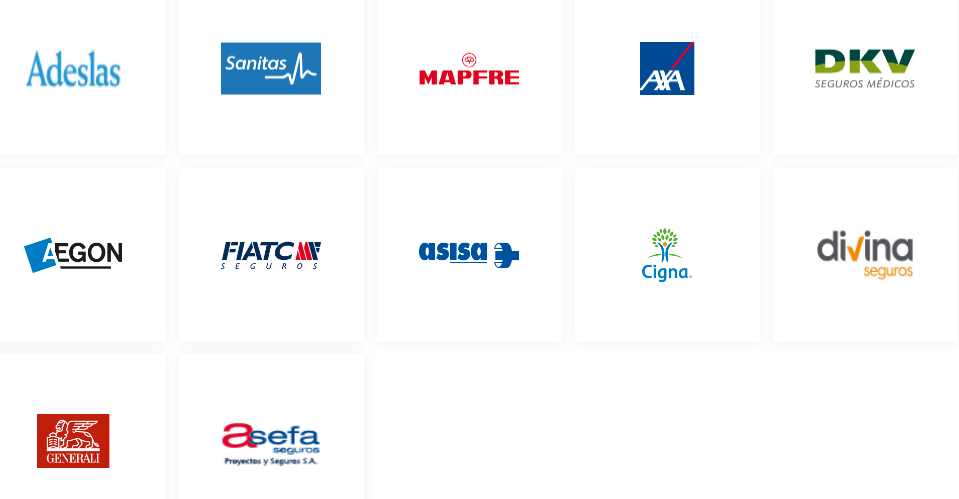
For those seeking a higher level of coverage, comprehensive insurance is an option. Comprehensive insurance, as the name suggests, provides a more extensive level of coverage. In addition to covering damages to other people and their property, it also covers damages to your own car, regardless of who is at fault in the accident. This can include damages caused by collisions, theft, vandalism, fire, and even natural disasters.
Comprehensive insurance is typically more expensive than third-party liability insurance, but it provides a greater level of protection. It can be particularly beneficial if you have a new or expensive car, as it can save you significant costs in the event of an accident or other incident.
Road Tax
Road tax, known in Spain as ‘Impuesto sobre Vehículos de Tracción Mecánica’ (IVTM), is a yearly tax that all car owners are required to pay. This tax contributes to the maintenance and development of road infrastructure in the country, ensuring that roads are safe and well-maintained for all users.
The amount of road tax you are required to pay is determined by a number of factors, including the type of car you own and its CO2 emissions. Cars that are more environmentally friendly, such as electric cars or hybrids, typically have lower road tax rates. On the other hand, cars with high CO2 emissions are subject to higher rates. This is part of Spain’s commitment to reducing greenhouse gas emissions and promoting more sustainable modes of transport.
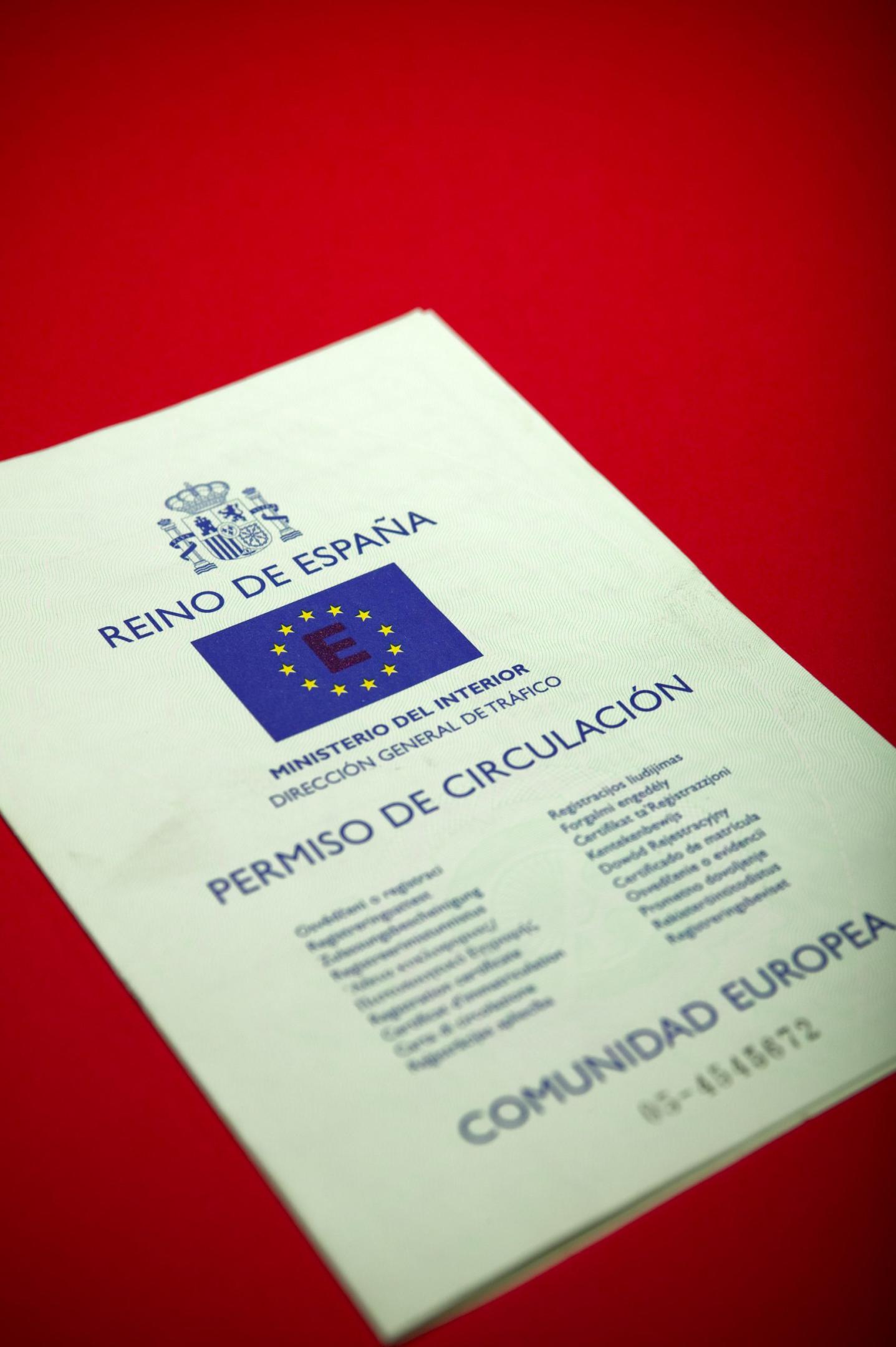
The specific rates for road tax can vary from one municipality to another, so it’s advisable to check the rates in your local area. You can usually find this information on your local town hall’s website or by contacting them directly.
Paying your road tax is a straightforward process. You can typically pay it at your local town hall, or in some cases, online. It’s important to pay your road tax on time to avoid any penalties or fines.
Inspecting a Used Car in Spain
If you’re buying a used car in Spain, it’s important to inspect the car thoroughly before making a purchase. This section will provide some tips on what to look for when inspecting a used car.
Exterior Inspection
Starting with the exterior of the car is a sensible first step when inspecting a potential purchase. The car’s exterior can give you a lot of information about its history and how well it’s been maintained.
Look for any signs of damage, such as dents, scratches, or rust. These could indicate past accidents or neglect. While minor cosmetic damage may not affect the car’s performance, significant damage could suggest more serious underlying issues.
Pay close attention to the condition of the tires. Check for adequate tread depth and look for any signs of uneven wear, which could indicate alignment or suspension problems. Also, ensure the tires are all the same brand and type, as mixing different types can affect the car’s handling and safety.
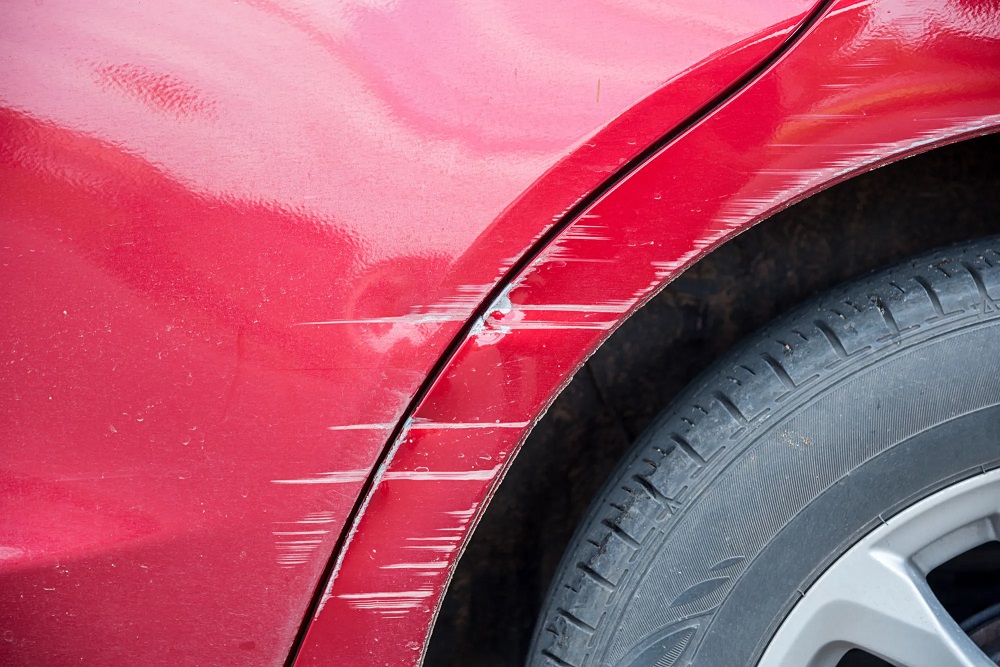
Make sure all the lights are working properly, including the headlights, tail lights, brake lights, and turn signals. Non-working lights can be a safety hazard and could also result in a fine.
The Vehicle Identification Number (VIN) is another important aspect to check. The VIN is a unique code assigned to each car, and it can provide valuable information about the car’s history. Make sure the VIN on the car matches the VIN on the car’s documents. If they don’t match, it could be a sign of fraud.
Interior Inspection
Moving on to the interior of the car, there are several key areas to inspect. The condition of the interior can provide insight into how well the car has been cared for and can also affect your comfort and enjoyment while driving.
Start by checking the condition of the seats. Look for any signs of wear and tear, such as rips, stains, or sagging. The seats should be comfortable and supportive, and the adjustment mechanisms should work smoothly.
Next, inspect the dashboard and the car’s controls. All the gauges and indicators should be functioning correctly. Check the condition of the steering wheel and the gear shift. They should be in good condition and comfortable to use.
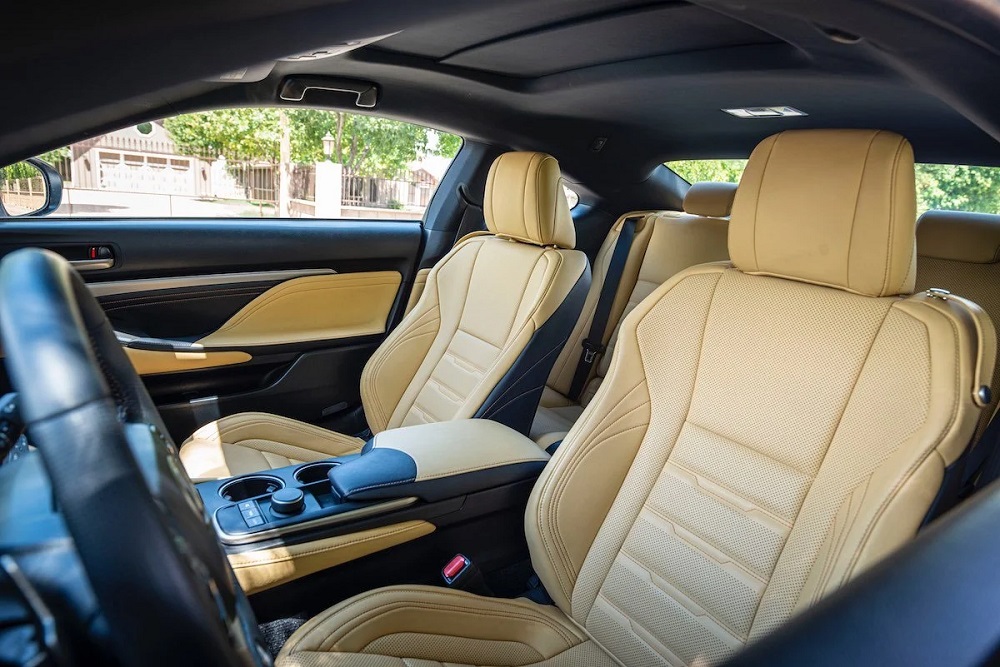
The car’s air conditioning and heating systems are also important to check. Turn them on to make sure they’re working properly. The air should be cool when the air conditioning is on and warm when the heating is on. Any issues with these systems can be costly to repair.
The odometer, which shows how many miles the car has been driven, is another crucial aspect to check. A car with low mileage might be a better choice as it’s likely to have less wear and tear. However, it’s important to ensure the odometer reading matches the car’s condition and service history. A car with unusually low mileage for its age could be a red flag.
Mechanical Inspection
The final, and perhaps most crucial, part of the car inspection involves checking the car’s mechanical components. This can be a bit more challenging if you’re not mechanically inclined, but it’s an essential step in ensuring the car is in good working order.
If possible, it’s highly recommended to bring a mechanic with you. A professional mechanic has the knowledge and experience to thoroughly inspect the car’s engine, transmission, brakes, and other important parts. They can spot potential issues that you might miss and can provide an unbiased assessment of the car’s condition.

The engine is the heart of the car, so pay close attention to it. The mechanic should check for any leaks, listen for any unusual noises, and inspect the overall condition of the engine. They should also check the transmission for smooth operation and the brakes for effective stopping power.
In addition to a mechanical inspection, you should also take the car for a test drive. This allows you to see how the car performs on the road and can reveal issues that aren’t apparent when the car is stationary. Pay attention to how the car accelerates, brakes, and handles corners. Listen for any unusual noises and note any unusual vibrations or smells.
Buying from a Dealership vs. a Private Seller
The decision to buy a car from a dealership or a private seller is a significant one and can greatly influence your car buying experience. Both options have their own sets of advantages and disadvantages, and the best choice depends on your specific needs, circumstances, and comfort level.
🖒 Advantages of Buying from a Dealership
Dealerships are often the go-to choice for many car buyers, and for good reason. They offer a wide range of cars, both new and used, giving you a variety of options to choose from. Whether you’re looking for a brand-new model or a used car with a specific set of features, a dealership can likely provide it.
One of the key advantages of buying from a dealership is the assurance of quality. Dealerships often inspect their cars thoroughly and provide warranties and after-sales services. This can give you peace of mind knowing that if anything goes wrong with the car within a certain period, the dealership will take care of it.
Dealerships also handle all the paperwork involved in the car buying process. This includes registration, title transfer, and sometimes even insurance. This can make the process more straightforward and less stressful for you, especially if you’re unfamiliar with the legalities of buying a car.
Moreover, dealerships often offer financing options, making it easier for you to buy a car even if you don’t have the full amount upfront. They can help you secure a loan and create a payment plan that fits your budget.
🖓 Disadvantages of Buying from a Dealership
Despite the advantages, buying a car from a dealership also has some downsides. One of the main disadvantages is that cars from dealerships tend to be more expensive than those from private sellers. This is because dealerships have overhead costs and need to make a profit. They also provide added services and guarantees, which are factored into the price of the car.
While dealerships can offer a wide range of cars, they may not have the specific model or features you’re looking for. In such cases, you might have to wait for the dealership to source the car, or you might have to compromise on your preferences.
Dealerships can also be high-pressure environments. Salespeople at dealerships work on commission and are often under pressure to make sales. This can sometimes lead to aggressive sales tactics, which can be off-putting for some buyers.
🖒 Advantages of Buying from a Private Seller
On the other hand, buying a car from a private seller can offer a different set of advantages. One of the main benefits is cost. Private sellers often offer lower prices as they don’t have the overhead costs that dealerships do. They’re usually selling their car because they want to upgrade or because they no longer need it, and they might be willing to negotiate on the price.
Buying from a private seller also allows you to get a detailed history of the car. The seller can tell you about any repairs or issues they’ve had, how the car has been maintained, and why they’re selling it. This can give you a better understanding of what you’re getting into.
In addition, buying from a private seller can be a more relaxed experience. You can take your time to inspect the car, ask questions, and make a decision without the pressure of a salesperson.
🖓 Disadvantages of Buying from a Private Seller
While buying a car from a private seller can have its advantages, it also comes with its own set of challenges. One of the main disadvantages is the lack of a warranty. Private sellers do not provide warranties, so if something goes wrong with the car after you buy it, you’ll be responsible for the repairs. This can potentially add to the cost of the car and cause inconvenience.
In addition, buying from a private seller requires more effort on your part. You need to handle the paperwork yourself, which can be complex if you’re not familiar with the process. This includes transferring the title, registering the car in your name, and arranging for insurance.
Inspecting the car is also more critical when buying from a private seller. Unlike dealerships, private sellers don’t usually provide detailed inspections or certifications of the car’s condition. This means you’ll need to arrange for a mechanic to inspect the car or do a thorough inspection yourself to ensure there are no hidden issues.
Moreover, private sellers might not offer financing options. This means you’ll need to have the full amount ready or secure a loan from a bank or other financial institution.
The Role of the NIE in Buying a Car
In Spain, the NIE (Número de Identificación de Extranjero) plays a crucial role in many transactions, including buying a car. This unique identification number for foreigners is required for many legal and administrative procedures.
What is the NIE?
The NIE is a unique identification number assigned to foreigners in Spain. It’s used for many legal and administrative procedures, including buying a car. The NIE is issued by the Spanish National Police and is required for all foreigners who own property, work, or carry out financial transactions in Spain.
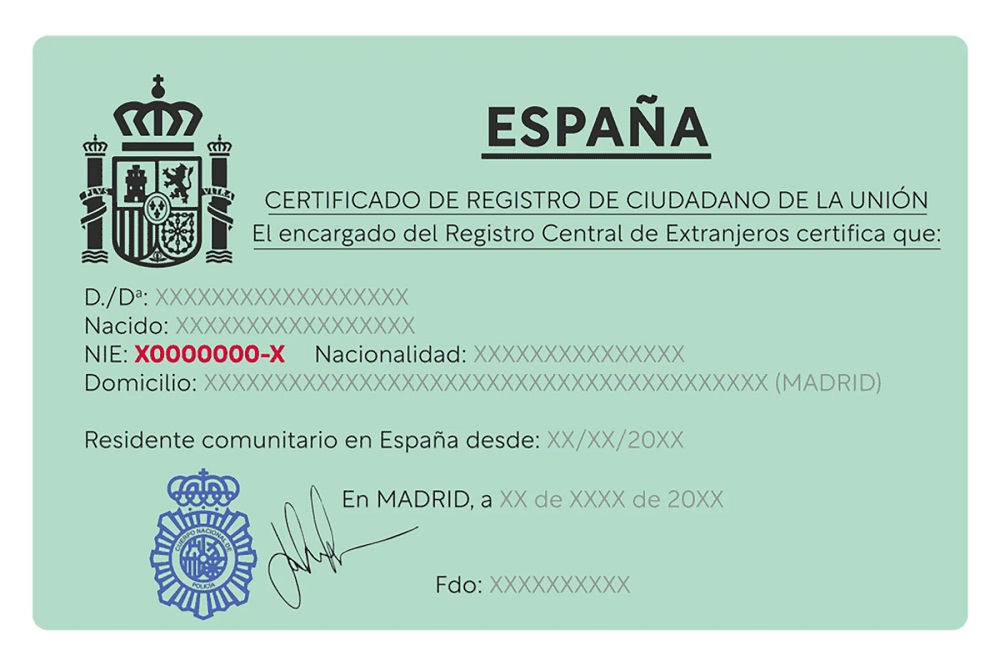
The NIE is not just a number; it’s a form of identification that verifies your legal status in Spain. It’s used in various situations, from opening a bank account to signing a contract for a mobile phone plan. In the context of buying a car, the NIE is used to register the car in your name and to pay the necessary taxes and fees.
How to Get a NIE?
Getting an NIE involves a few steps. First, you need to apply at a Spanish National Police station or at a Spanish consulate in your home country. The application process involves filling out a form, providing identification, and paying a fee. The process can take several weeks, so it’s important to apply for your NIE well in advance of buying a car.
Once your application is approved, you’ll receive a card with your NIE. This card is your proof of identification and should be kept safe. It’s also a good idea to make a few copies of the card, as you’ll need to provide a copy whenever you use your NIE.
If you need more help for obtaining your NIE, read this blog: How to Obtain Your NIE in Spain: A Comprehensive Guide
Why the NIE is Important When Buying a Car?
The NIE is crucial when buying a car in Spain as it’s used to register the car in your name. Without an NIE, you won’t be able to complete the car buying process. The NIE is also required for other car-related procedures, such as insuring the car and paying road tax. In addition, if you decide to sell the car in the future, you’ll need your NIE to transfer the ownership of the car.
Financing a Car in Spain
Financing a car in Spain can be a viable option if you don’t have the full amount to pay upfront. This section will provide an overview of how car financing works in Spain and what you need to consider.
Understanding Car Financing
Car financing allows you to buy a car by paying for it in installments over a certain period. This is typically done through a loan from a bank or a financial institution. The lender pays the full price of the car to the seller, and you repay the lender over time with interest.
The terms of the loan, including the interest rate and the repayment period, are determined by the lender based on factors such as your credit score, income, and the price of the car. It’s important to understand these terms and make sure they fit your budget before agreeing to a loan.
Applying for a Car Loan
Applying for a car loan in Spain involves several steps. First, you need to choose a lender. This can be a bank, a credit union, or a financial institution. It’s a good idea to compare offers from different lenders to find the best deal.
Once you’ve chosen a lender, you’ll need to fill out an application form. This typically involves providing information about your income, employment, and financial situation. The lender will use this information to assess your ability to repay the loan.

After you submit your application, the lender will review it and make a decision. If your application is approved, the lender will provide you with a loan agreement detailing the terms of the loan. Make sure to read this agreement carefully and understand all the terms before signing it.
Things to Consider When Financing a Car
While financing a car can make it more affordable, it’s important to consider the total cost of the loan. This includes the interest you’ll pay over the life of the loan, which can add a significant amount to the cost of the car.
It’s also important to consider your budget and make sure you can afford the monthly payments. Missing payments can lead to penalties and can negatively affect your credit score.
Finally, keep in mind that when you finance a car, the lender will hold the title of the car until the loan is fully paid off. This means you won’t officially own the car until you’ve made all the payments.
Arranging for Insurance
Insurance is a crucial part of owning a car in Spain. It provides financial protection in case of accidents, theft, or damage to the car. When buying a car, you’ll need to arrange for insurance before you can register the car in your name.
There are several types of car insurance in Spain, including third-party liability insurance, which covers damages to other people or property caused by your car; collision insurance, which covers damages to your car in an accident; and comprehensive insurance, which covers damages to your car from non-accident-related events like theft or natural disasters.
When choosing an insurance policy, consider factors like the coverage, the deductible, the premium, and the reputation of the insurance company. It’s also a good idea to compare quotes from different insurance companies to find the best deal.
Once you’ve chosen an insurance policy, you’ll need to provide the insurance company with information about the car and your driving history. The insurance company will then issue a policy and provide you with proof of insurance, which you’ll need to register the car.
Registering the Car
Once you’ve bought the car and arranged for insurance, the next step is to register the car in your name. This involves transferring the title of the car from the seller to you and registering the car with the Spanish traffic authority, known as the Dirección General de Tráfico (DGT).
To register the car, you’ll need to provide the DGT with several documents, including the car’s title, proof of insurance, your NIE, and proof of payment of the car tax. The DGT will then issue a new title in your name and a registration certificate, which you’ll need to keep in the car at all times.
Registering a car in Spain also involves paying a registration tax, which is based on the value of the car and its CO2 emissions. The tax can be quite high for expensive or high-emission cars, so it’s something to consider when choosing a car.
Paying the Car Tax
In addition to the registration tax, car owners in Spain are also required to pay an annual car tax, known as the Impuesto sobre Vehículos de Tracción Mecánica (IVTM). The IVTM is a municipal tax, meaning it’s administered by the city or town where you live.
The amount of the IVTM varies depending on the power of the car’s engine and the municipality’s tax rate. To pay the tax, you’ll need to go to your local town hall or city council, provide them with the car’s registration certificate and your NIE, and pay the tax amount. You’ll then receive a receipt, which you should keep as proof of payment.
Additional Tips for Buying a Car in Spain
While we’ve covered the main steps of buying a car in Spain, there are a few additional tips that can help you navigate the process more smoothly.
Consider the Cost of Ownership
When buying a car, it’s important to consider not just the purchase price, but also the cost of ownership. This includes ongoing costs like fuel, insurance, maintenance, and taxes. These costs can add up over time and significantly increase the total cost of owning a car. So, before you buy a car, make sure to factor in these costs and ensure they fit within your budget.
Inspect the Car Thoroughly
Whether you’re buying from a dealership or a private seller, it’s crucial to inspect the car thoroughly before making a purchase. Check the exterior for any signs of damage or rust, the interior for any signs of wear and tear, and the engine for any signs of problems. If possible, bring along a mechanic or someone knowledgeable about cars to help with the inspection.
Test Drive the Car
A test drive is a crucial part of buying a car. It gives you a chance to see how the car performs on the road and to check for any issues that might not be apparent when the car is stationary. During the test drive, pay attention to how the car handles, how the brakes and steering feel, and whether there are any unusual noises or vibrations.
Check the Car’s History
Before buying a used car, it’s important to check its history. This can provide valuable information about the car’s past, including any accidents it’s been in, any major repairs it’s had, and whether it’s been regularly serviced. You can check the car’s history by asking the seller for the car’s service records or by using a car history check service.
Be Prepared to Walk Away
Finally, remember that you’re under no obligation to buy a car if it doesn’t meet your needs or if you’re not comfortable with the deal. Don’t be afraid to walk away if the price is too high, if the car has too many issues, or if the seller is not willing to negotiate. There are plenty of other cars out there, and you’re likely to find a better deal if you’re patient and persistent.H2: Conclusion
Buying a car in Spain can be a complex process, but with the right information and preparation, it can be a rewarding experience. From choosing the right car and negotiating the price to understanding the legal requirements and arranging financing, each step requires careful consideration and planning. But once you’ve navigated through the process and finally have the keys to your new car in hand, you’ll find that all the effort was worth it. Whether you’re planning to explore the Spanish countryside, commute to work, or simply enjoy the freedom of having your own car, owning a car in Spain can open up a world of possibilities. Happy car hunting!






